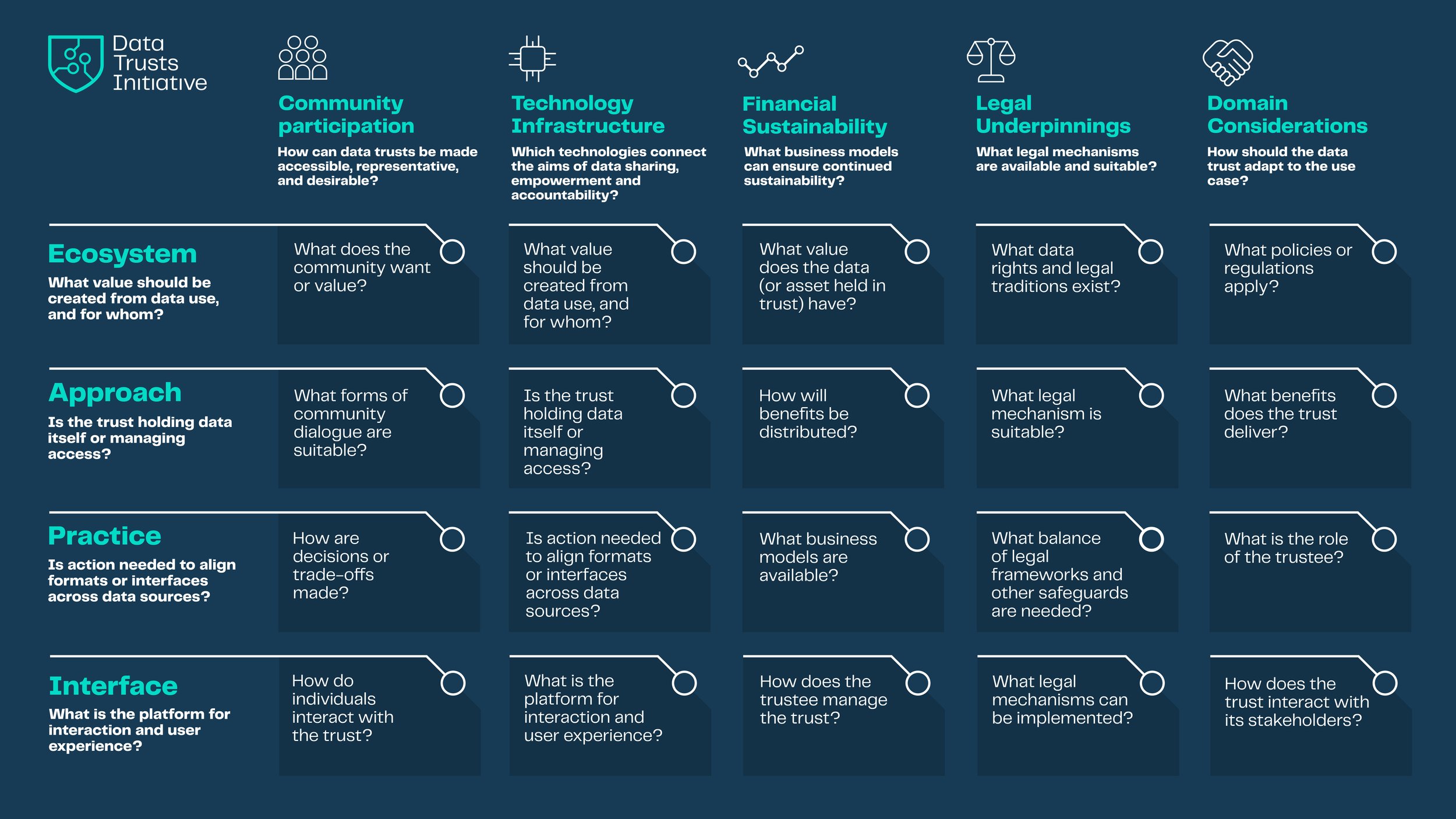Creating a pathway to successful real-world data trusts
Just over a year ago, the Data Trusts Initiative started with the question “how do we create real-world data trusts?” Building on the excitement that was growing around data trusts as a novel form of data stewardship, we wanted to understand the data stewardship strategies that could empower individuals and communities and to support the data trusts community in operationalising real-world data trust projects.
More research needed?
In our first Working Paper, we identified areas where further action was needed to clarify core data trust concepts and to understand what suite of practical actions could help deliver trustworthy data stewardship. This data trusts research agenda asked: how do data trusts fit in the wider data governance landscape? What institutional safeguards are needed surrounding data trusts? Which interventions will ensure data trusts are inclusive and representative? Which business models can help ensure the continued sustainability of a data trust? And which use cases can help clarify how data trusts would work in practice?
Picking up this agenda, our Data Trusts Initiative-funded research projects have been investigating a variety of issues at the interface of theory and practice, including:
-
What do recent use cases tell us about operational strategies for data trusts?
-
How can legal mechanisms associated with data trusts enhance participation in healthcare research?
-
How might data trusts operate in the urban context?
-
How can data trusts support civic engagement and environmental stewardship in local communities?
-
How can data trusts be created in civil law jurisdictions?
-
Does the General Data Protection Regulation (GDPR) allow individuals to mandate their data rights to a trust (or other data intermediary)?
-
What combination of technical and legal infrastructure can give individuals more control over data about them?
Moving from research to practice
Insights from these studies are deepening our understandings of the issues and challenges in moving from theory to practice. Taking the data trust pillars that were the basis of our research agenda – community dialogue, technical systems, legal mechanisms, business models, and use cases – as a starting point, they point to an emerging framework for operationalising data trusts. With the aim of helping create a pathway to real-world implementation, we’ve started mapping these insights into the operational framework set out below.

With research, policy, and practice in this domain moving at pace, those developing data trusts are often operating across multiple levels – and across multiple pillars – simultaneously. At an ecosystem level, data trusts practitioners are grappling with foundational questions about the nature of the demand for data trusts, what functions these trusts should deliver, and how the operational environment shapes their form and function. When considering what approach a data trust should take in this environment, different operational strategies might be possible, and a data trust will need to negotiate how to map those strategies onto trust-level objectives. At a practical level, those operational strategies translate to a range of different design choices, which will affect how a data trust works and how its beneficiaries interact with the trust.
The intersection of practice and policy
These projects are also increasing our understanding of the enablers that contribute to an amenable environment for data trust pilot projects. We’ve talked previously about the policy enablers that can support the development of data trusts on this blog before. Adding to these, our research projects highlight the importance of interventions that:
-
nurture demand for alternative forms of data stewardship; and
-
ensure data trusts remain trustworthy through appropriate safeguards or accountability structures.
If data trusts are to be truly bottom-up, they need to be accessible to all in society. This means not only building a public dialogue about data and its use and increasing data literacy efforts, but also making the purpose, language and operational of data trusts open and inclusive. Understanding what data trusts are and what benefits they bring needs to be easier, and there need to be ways of bringing communities together to agree how data trusts should serve their interests.
This clarity can provide a foundation for a wider set of interventions that ensure data trusts remain trustworthy. Those interventions might include common definitions about what a data trust – in comparison to other types of data stewardship – does; standards or certification mechanisms to ensure underpinning technologies are fit for purpose; strategies that ensure sufficient longevity of data trusts; or testbeds that allow practitioners to explore ways of innovating and failing safely.
Supporting data trusts pioneers
Many of the issues surrounding data trusts today can only be resolved in application. Examples, case studies, and pilot projects are needed to work through different strategies, building on this operational framework and creating a pathway to real-world data trusts.
The Data Trusts Initiative is delighted to announce our first set of funded pilot projects. Over the next year we’ll be working with the Brixham Data Trust and the Born in Scotland Data Trust to set up community-focused data stewardship activities. You can read more about their work on our website, and we’ll be posting further insights or updates to our operational framework as these projects progress.

